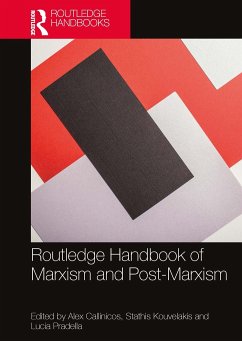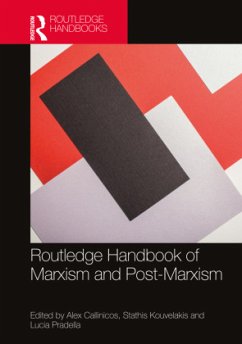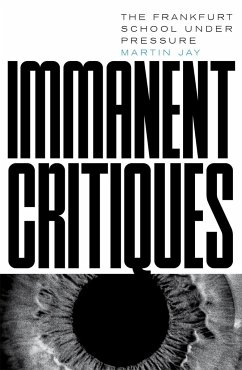Fredric Jameson
Gebundenes Buch
The Benjamin Files
Versandkostenfrei!
Versandfertig in über 4 Wochen
Weitere Ausgaben:

PAYBACK Punkte
11 °P sammeln!





Jameson's first full-length engagement with Walter Benjamin's work
Fredric Jameson is Distinguished Professor of Comparative Literature at Duke University. The author of numerous books, he has over the last three decades developed a richly nuanced vision of Western culture's relation to political economy. He was a recipient of the 2008 Holberg International Memorial Prize. He is the author of many books, including Postmodernism, Or, The Cultural Logic of Late Capitalism, The Cultural Turn, A Singular Modernity, The Modernist Papers, Archaeologies of the Future, Brecht and Method, Ideologies of Theory, Valences of the Dialectic, The Hegel Variations and Representing Capital.
Produktdetails
- Verlag: Durnell Marston / Verso US
- Artikelnr. des Verlages: 5092
- Seitenzahl: 272
- Erscheinungstermin: 3. November 2020
- Englisch
- Abmessung: 243mm x 161mm x 27mm
- Gewicht: 436g
- ISBN-13: 9781784783983
- ISBN-10: 1784783986
- Artikelnr.: 43023831
Herstellerkennzeichnung
Libri GmbH
Europaallee 1
36244 Bad Hersfeld
gpsr@libri.de
In The Benjamin Files, the high Jamesonian style is everywhere on display, with the slight difference that the prose in this book seems at once more forthright and more playful than in many of the older works. Ian Balfour Los Angeles Review of Books
Für dieses Produkt wurde noch keine Bewertung abgegeben. Wir würden uns sehr freuen, wenn du die erste Bewertung schreibst!
Eine Bewertung schreiben
Eine Bewertung schreiben
Andere Kunden interessierten sich für













